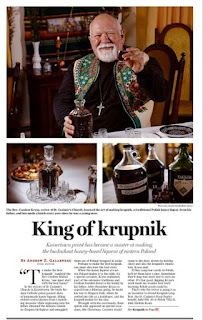Holy Sprinkles -- VID 8 -- Domestic Church Series
Household uses for Holy Water
Our bodies are mostly
water; plant and animal life cannot exist without this life-giving
refresher. One dies of thirst, long
before hunger. The refuge of an oasis is
possible as a source of available water, recognizable in an arid desert for
miles by green growth and shade giving palm trees. Similar images ornamented
ancient baptistries.
As with Noah and the ark,
water can also destroy. Hailing from Niagara
Falls my entire life I know that Native Americans named this wonder of the
world “thunder waters” the deep, persistant voice of their ancestors. These waters lead them back both to the origin of all human life, and its
profound meaning which elders pass on by word-of-mouth from generation to
generation. Similarly, the Book of Genesis presents the primeval “breath of
God” hovering as the Holy Spirit over the original waters.
The same divine spirit
and voice reappear at Jesus’s baptism in the Jordan river. Byzantine Eastern
Christians celebrate this feast, equal to Christmas Day, as a global rebirthing
event and salvation from death. Breath,
life, word, and origin bind together to find creating a home full of meaning,
the center of which is a divine plumbing system. The Orthodox rite of blessing Epiphany water
ends with youths taking a celebrational dive for the Lord’s Cross —symbolizing
Jesus’ victory over water’s destructive powers. Festal icons of this day
portray Jesus as Conqueror-Son of God. This holy-day water is also taken home
for the annual New Year house blessing.
Parents by virtue of
their Baptism and Matrimony have the privilege to bless their children and
younger members of their family. While
this can be done, as at Baptism, by the elder using their thumb to sign youthful
forehead with the Lord’s Cross, some families include a holy water sprinkling.
On entering a church, making
a sign of Jesus’ Cross to the Names of the Holy Trinity, after having immersed
fingers into holy water, is in itself a prayer.
Most churches offer holy water blessed
by a priest in dispenser fonts near the Baptistry. This holy water is available particularly for
home use.
Parents blessing their
children has Biblical origins. Elders
and parents who gave life, have the responsibility to restore it through
blessing. Senior members may sprinkle
their children to celebrate their Baptismal anniversary, patron’s feast-day, or
birth-day. Some traditional Catholic
parents bless their children before sending them off to church for a wedding
ceremony, to school on the first day, to college, or their first/new job.
Sprinkling is meant to be
playful. Dipping fingers into a jar of holy
water (any washed and marked condiment or canning jar) is the simplest way for adults
to bless. Immersing an evergreen branch or even a clean bottle brush helps
spread refreshingly surprising droplets over an entire gathering.
An especially fun-filled
feast is that of St John the Baptist (June 24). St John’s mission and life speaks
of water and Baptism at the Jordan River.
Many believers commemorate his day (six months before Jesus’ birth) by
taking a swim, for he is believed to have blessed the waters.
A yard sprinkler party is
most appropriate. Or take a bucket of
water and throw some flower buds (without stems) letting them float on the
surface. Similarly, a holy day centerpiece can be a wide and/or clear soup
bowl, filled with holy water with open flower buds floating on the
surface (above photo). As table grace, each person can
dip their fingers into the bowl and bless themselves or the senior member may
sprinkle everyone.
Having water available
all year long may assist some people going through hard times. I know children who bless themselves with
holy water when afraid or sad, or when tempted to do something wrong. When things seem to be not going right, a
parent may sprinkle the home while praying the Sign of the Cross or the Lord’s
Prayer, and even repeat the phrase, “deliver us from evil.”
Whether you hold to this
or not, official church exorcists (diocesan bishops are responsible to delegate
a particular priest for this official office) have testified that a demon can
distinguish between holy water and the tap variety. The blessing of an ordained priest is a
powerful prayer bestowing on holy water the power to purify, protect and bless.
FYI surf the web for the
research of a Japanese scientist who studied how water over which prayers or
the names of positive people have been invoked, differs from water which has
been sworn or cursed over.
Next Saturday: Heaven
Door Tool: Ring’in joy
All video and textual
content of St Casimir’s Series on the Domestic Church and Tandem Blog Articles
© CzMKrysa, Buffalo, NY April-June 2020
99%
of what you need to celebrate the Domestic Church is already in your home.




Comments
Post a Comment